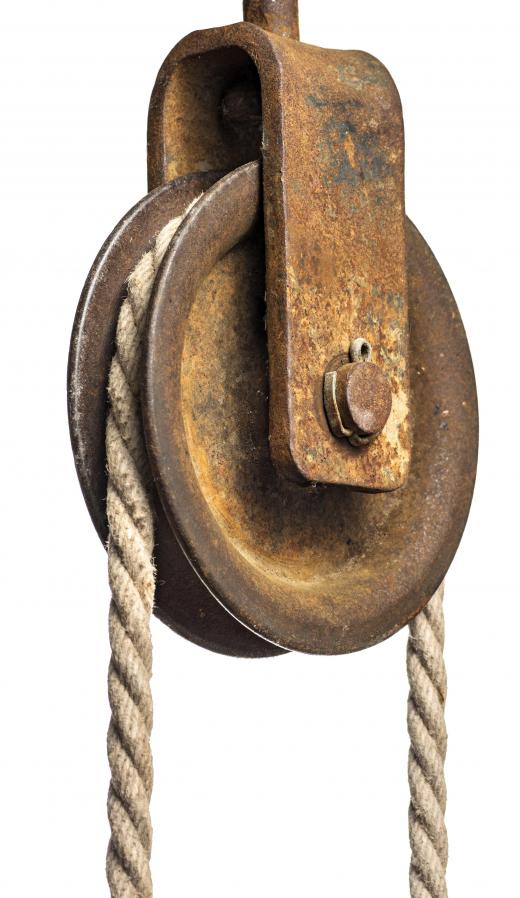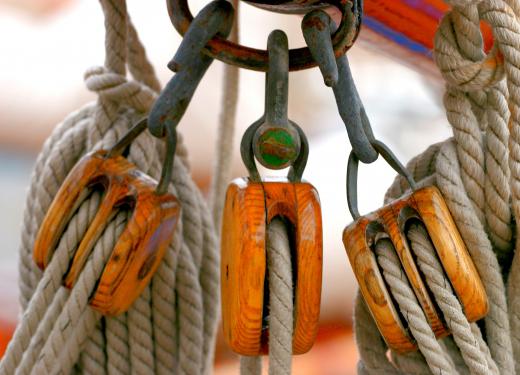Pulley size is determined by the diameter of the pulley, and the easiest way to determine this is to measure the device with a measuring tape. In systems that require multiple pulleys, the sizes of the pulleys may differ, and there is usually a ratio that allows the system to run at optimum efficiency. Pulleys that use belts also need to be measured to make sure that the belt is the proper width.
The size of a pulley is listed by its manufacturer as a part of its specifications. If a pulley needs to be replaced, the serial number printed on the pulley can be used to look up its size. Websites and catalogs that sell new pulleys will list pulley size along with the product description.

Measuring pulley size by hand is relatively easy. A person can measure the pulley’s diameter by turning the pulley so that the circular portion faces front. A tape measure is placed from one side of the circle to the other, making sure that the measuring edge passes through the pulley’s midpoint.
In some configurations, the proper pulley size will depend upon a ratio of the size of a larger to the size of a smaller pulley. Knowing the size of one of the pulleys as well as the ratio is all that is needed to figure out what the size of the other pulley in the system is or should be. In this case, the size of the unknown pulley can be determined by dividing the known size by the ratio.

The height of the cylindrical portion of the pulley may also need to be measured to determine pulley size. Again, using a tape measure is the easiest way to find out the height. If the pulley has a lip on the edges to keep its belt from slipping off, the lip should not be included in the measurement because the usable space on the surface of the pulley does not include the guiding edges. This measurement is used to determine the proper size belt, which will be slightly narrower than the pulley itself.
